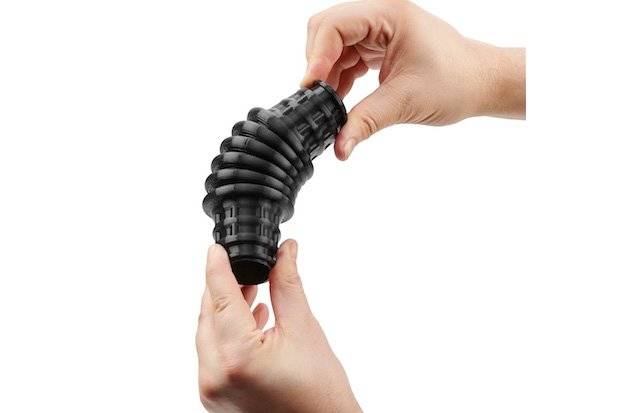[ihc-hide-content ihc_mb_type=”show” ihc_mb_who=”reg” ihc_mb_template=”3″ ]
[vc_row][vc_column][vc_column_text]www.tctmagazine.com
Stratasys introduced a range of new material products for its Fused Deposition Modelling (FDM) and PolyJet platforms at Formnext last week.
After revealing new details on its new metal 3D printing technology in Frankfurt, attention turned to developments on the polymer side.
The company has launched the TPU 92A Elastomer, available across its F123 FDM series and through its Stratasys Direct Manufacturing business. This material is said to boast high elongation and toughness, stretching significantly without losing shape, and with hands-free soluble support, can help to reduce production time and labour costs. The company believes this ‘compelling’ material product can enable users to produce medium to large parts, that are complex and require resilience, that were previously not possible.
“Creating elastomer parts using traditional silicone or CNC moulds are extremely costly and time-consuming – while it is our view that other additive techniques just cannot deliver parts with the size and complexity of our elastomer approach,” commented Zehavit Reisin, Vice President and Head of Solutions and Materials Business, Stratasys. “Manufacturers demand 3D printing solutions that can be put to work in real prototyping and extreme production environments. With reliable and highly resilient parts, our solutions are designed to enable customers to do just that.”
On another of its FDM platforms, the F900, Stratasys has made Antero800NA, a PEKK-based thermoplastic, available. This is a high-performance material, notable for its chemical resistance, high heat resistance, and low outgassing properties, which make it suitable for aerospace applications.
Strengthening the capabilities of its PolyJet J750 and J735 full-colour machines, meanwhile, the company launched a set of new materials able to mimic the qualities of rubber, leather or plastic. The Agilus30 White material follows the Agilus Black and Agilus Translucent materials. It will enable users to prototype parts such as rubber-like seals and gaskets, and vividly coloured sporting and consumer goods and electronic components, as well as healthcare applications. VeroVivid Cyan and VeroFlexVivid, meanwhile, have been developed to allow engineers to achieve realistic prototypes in the consumer goods, packaging, and eyewear markets.
Finally, MED625FLX, a bio-compatible material said to be well-suited for dental and orthodontic applications, is now available on Stratasys’ Objet 260 Dental and Objet 260/500 Dental Selection machines. This material has been designed to directly print flexible IDB trays, reducing bracket placement times and cutting the costs for labs.
Also at Formnext, Stratasys announced new partners to its Global Manufacturing Network. The new additions included Technologia & Design in Italy, Prometheus in South Korea, Tridi in Mexico, and Fathom in the United States.[/vc_column_text][/vc_column][/vc_row]
[/ihc-hide-content]
The AM Chronicle Editorial Team is a collective of passionate individuals committed to delivering insightful, accurate and engaging stories to additive manufacturing audiences worldwide.



